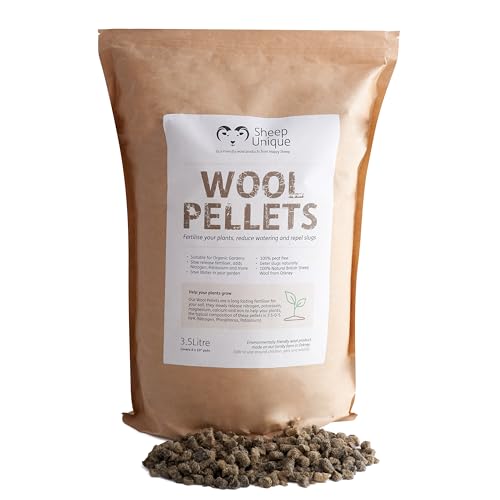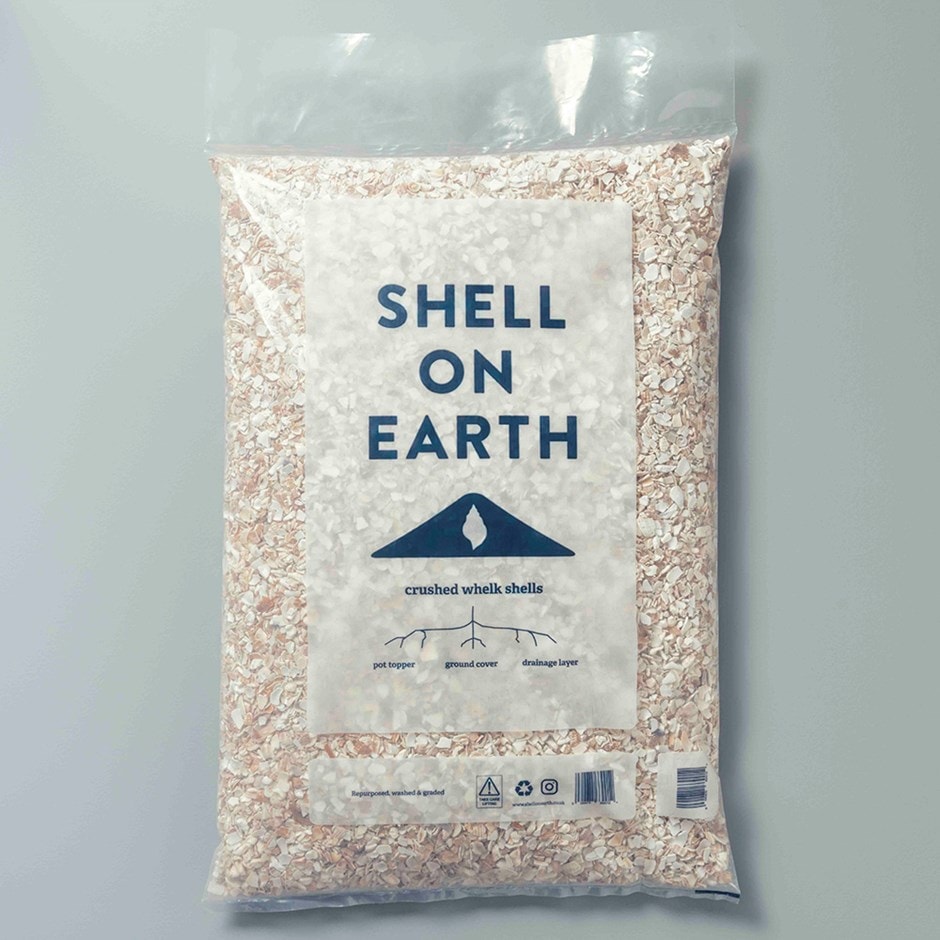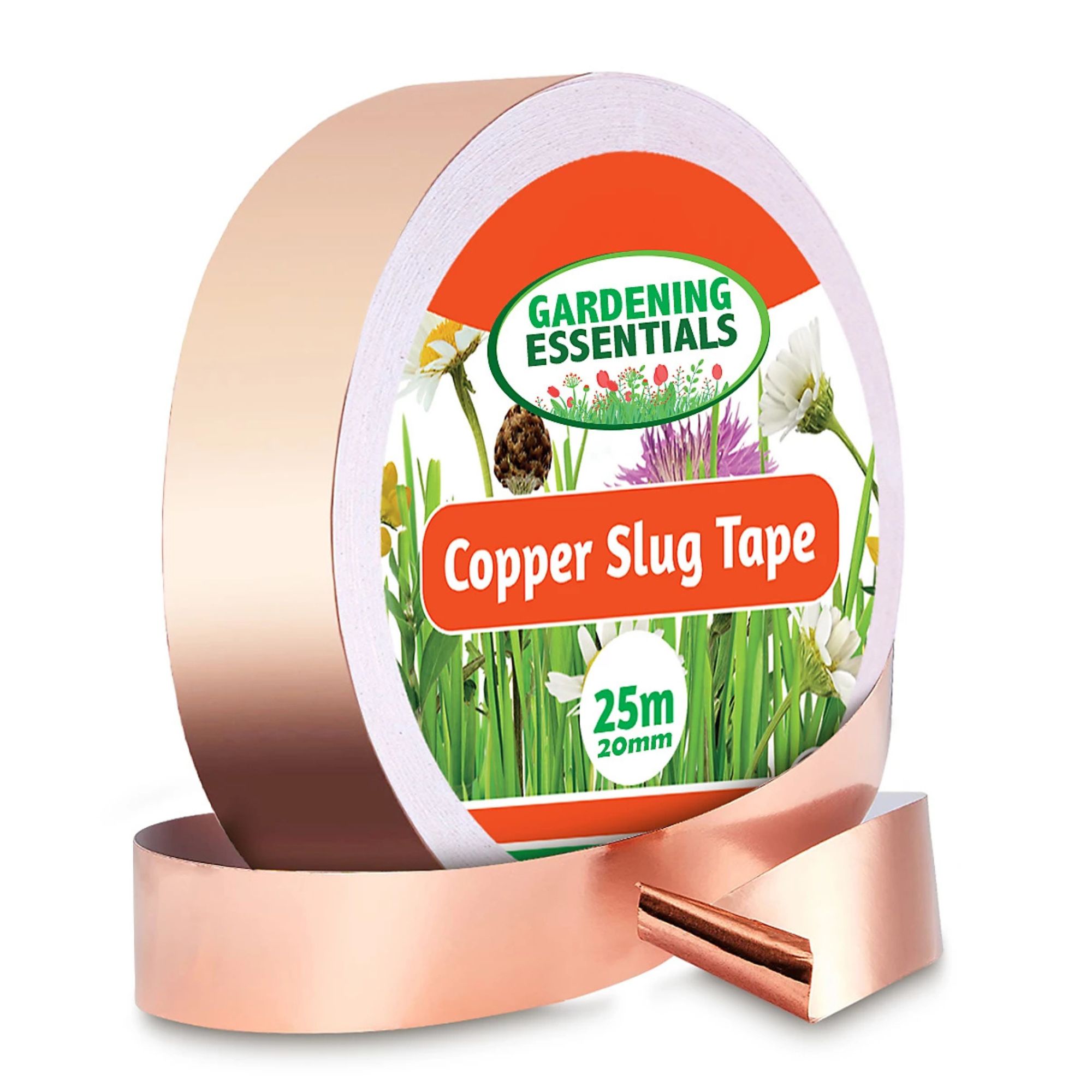8 plants that will repel snails and slugs – experts approved planting choices to stop them destroying your flower beds
These clever planting choices will give you a head start in the battle against slugs and snails

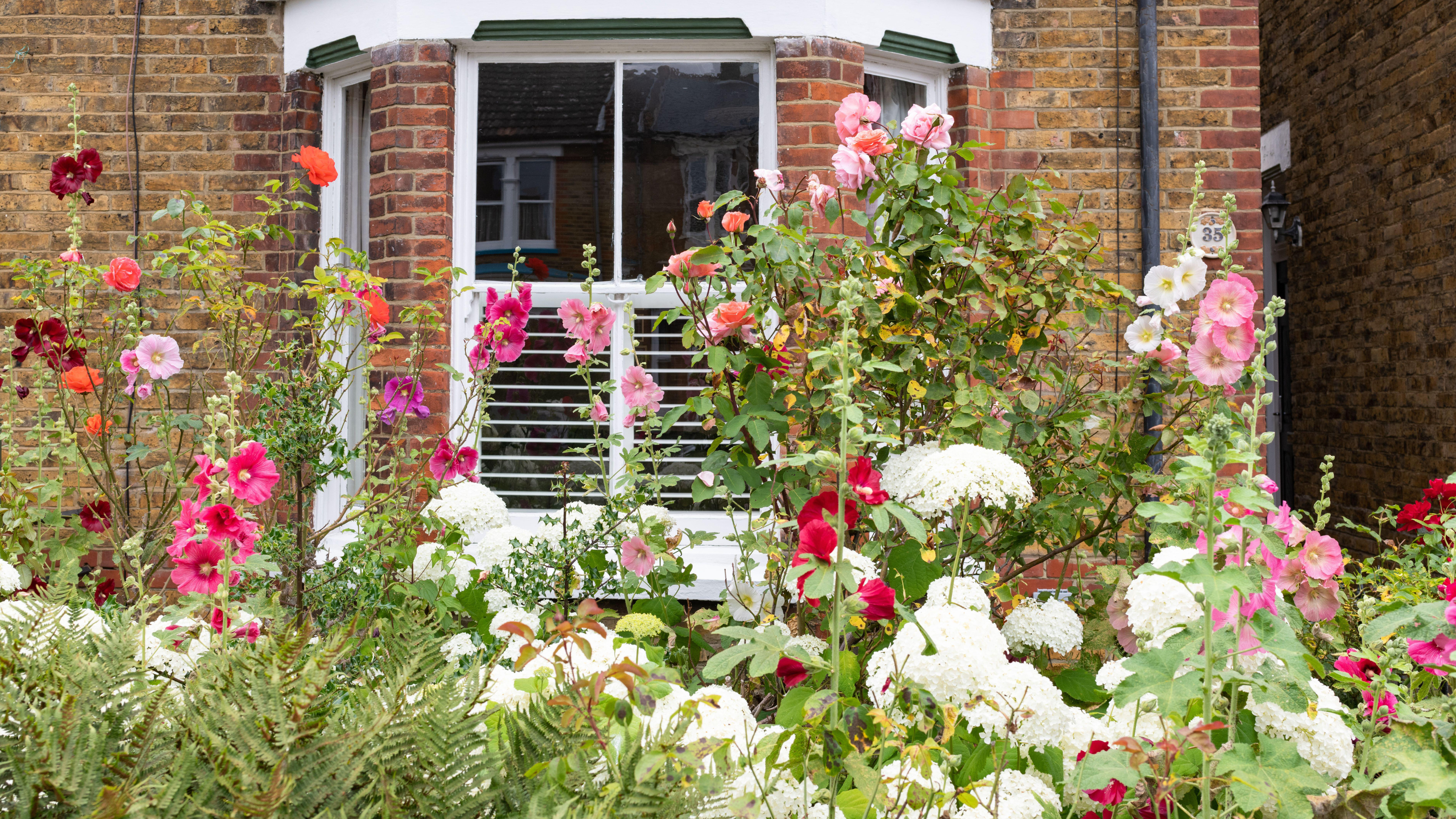
Sign up to our newsletter for style inspiration, real homes, project and garden advice and shopping know-how
You are now subscribed
Your newsletter sign-up was successful
There’s nothing more infuriating than heading outside to check how your plants are faring, only to discover they’ve been decimated overnight by hungry slugs and snails. But while there are certain plants that slugs are attracted to, there are plenty of snail and slug repellent plants they hate, so choosing these can be a great nature-friendly deterrent.
Gardening experts agree that it shouldn’t be a matter of simply reaching for the slug pellets in the battle of how to get rid of slugs - chemical deterrents can be harmful to other wildlife - and as annoying as they are, slugs and snails are an important part of the eco-system, helping return nutrients to the soil and as a food source for larger animals.
‘If your heart sinks every time, you spot your favourite plants munched down to stumps, it might be time to rethink what you’re growing for one of the best ways to keep slugs away,’ says Kate Turner, gardening expert for Miracle-Gro.
‘While plants like hostas and lupins are well-known favourites of slugs and snails, there are plenty of beautiful, easy-to-grow alternatives that these pests tend to avoid - saving you time, money, and disappointment.’

Kate is a level 3 RHS trained horticulturist with experience behind the scenes on top gardening shows like BBC Gardeners’ World, Love Your Garden, and Garden Rescue. She’s been Head Gardener at Charterhouse School, worked at RHS Wisley and for the past 2 years has worked as a horticultural expert advising different companies on all thing’s peat free, and her podcast, The Underground, talks to all the movers and shakers in the world of horticulture.
1. Lavender
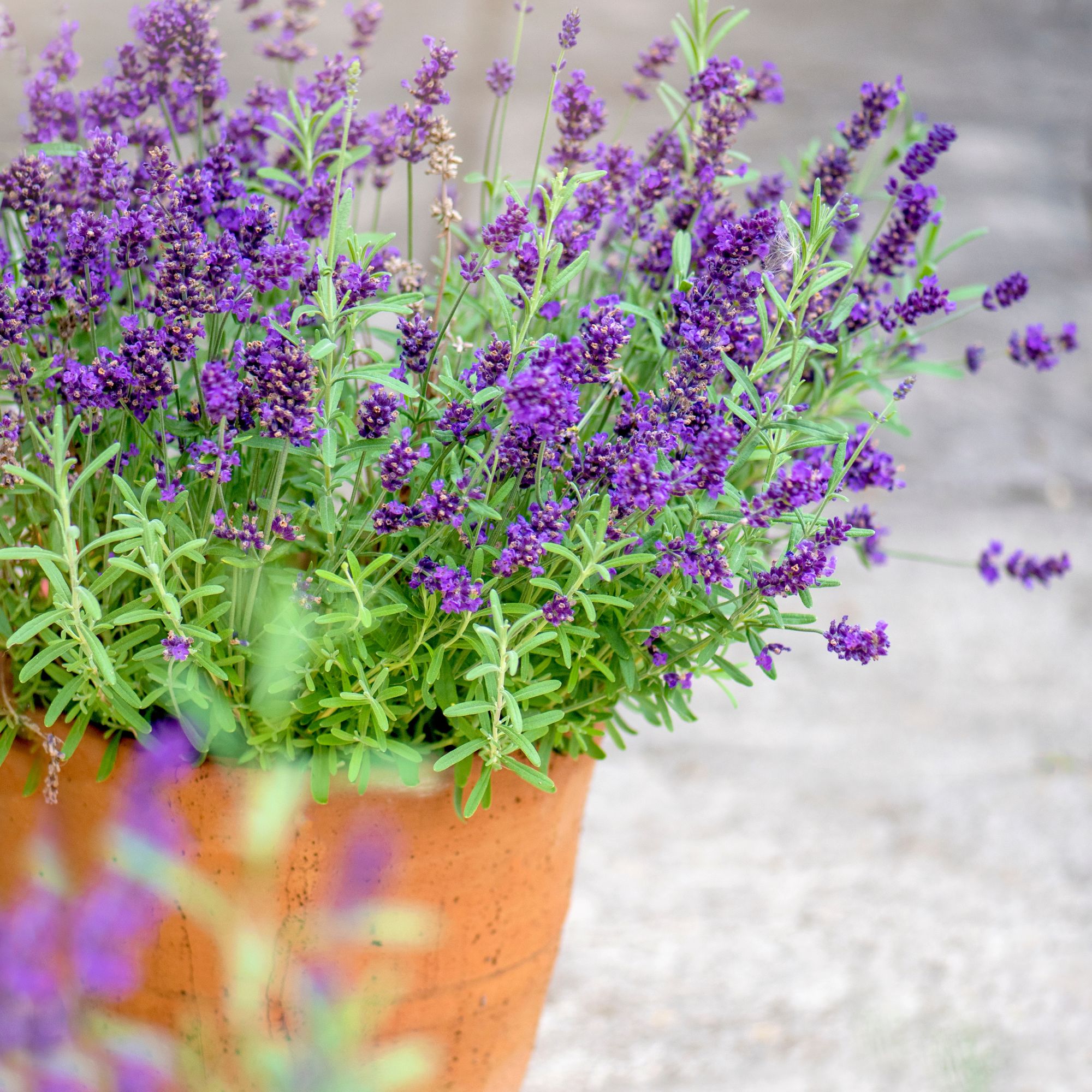
‘A favourite of the cottage garden, lavender grows happily without slug damage and is loved by bees,’ says Kate. ‘It thrives in sunny spots with well-drained soil, and also does brilliantly in pots.'
‘Snails tend to avoid tough, aromatic or textured plants, so lavender is a great choice for a bedding plant that slugs hate,’ says Hayden Salt, Garden Centre Manager at Jacksons Nurseries. ‘The fragrant scent of lavender is a natural deterrent and the woody stems are no fun for snails to chew on.’
‘Companion planting can work wonders too,’ adds Hayden. ‘Surrounding vulnerable plants with snail-resistant varieties creates a natural barrier. Combine with a bark mulch around plants - snails dislike navigating rough textures.’
Sign up to our newsletter for style inspiration, real homes, project and garden advice and shopping know-how
Where to buy lavender:
- Thompson & Morgan: Try lavender 'hidcote', from £6.99 it will make an excellent low hedge or path edging.
- Crocus: Or go for the soft rose-pink tones of lavandula angustifolia 'rosea', from £5.99.
2. Aromatic herbs
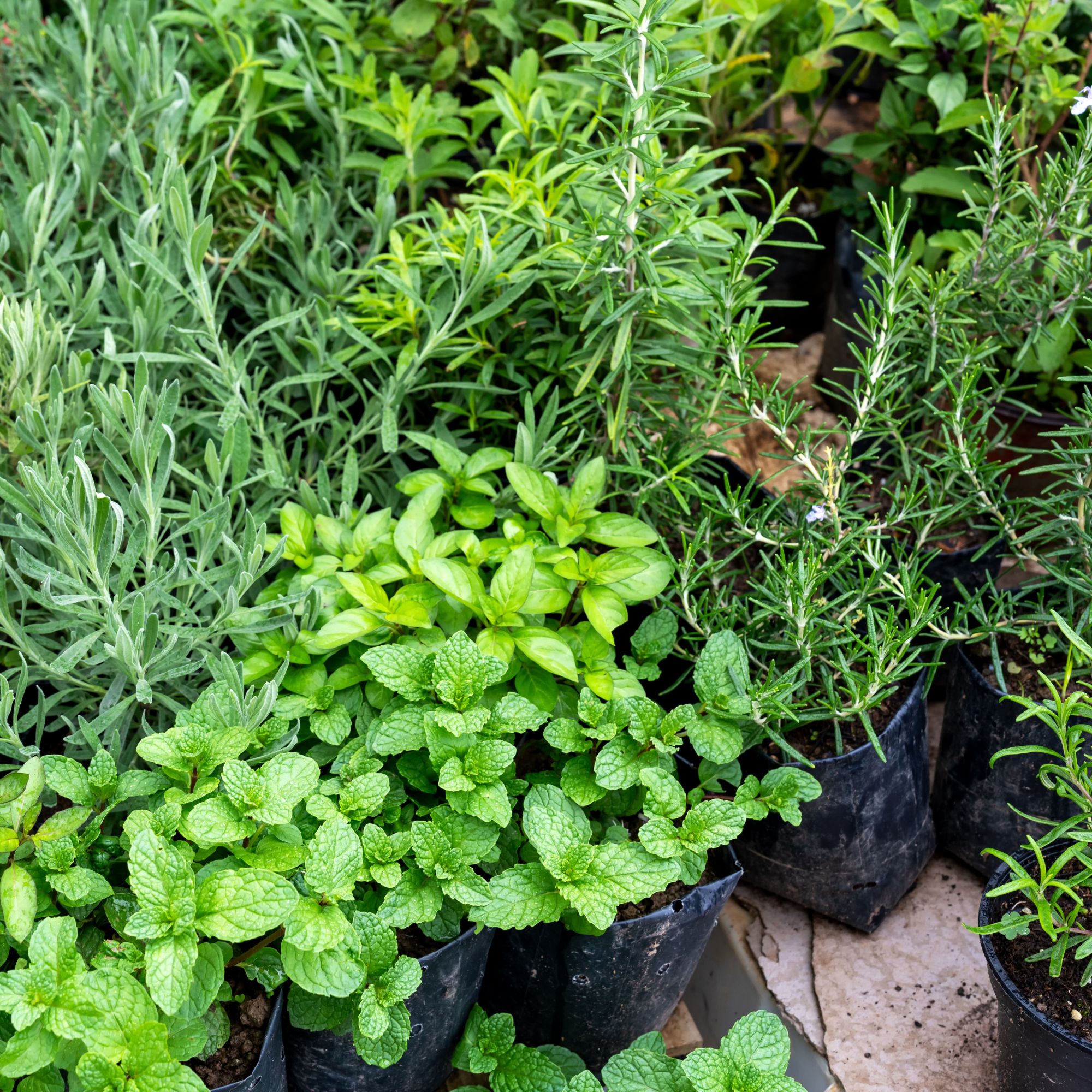
‘Growing aromatic herbs like rosemary, sage and mint around your garden can create a fragrant barrier that confuses and deters snails and slugs as they dislike the strong scent and scratchy texture,’ says Julian Palphramand, Head of Plants at British Garden Centres.
Aside from their culinary uses, aromatic herbs are easy to grow and can be strategically-placed just about anywhere in the garden, either in pots and containers or in the ground with bedding or amongst plants that slugs love to help keep the slimy invaders away.
Where to buy aromatic herbs:
- Dobies: Grow fragrant rosemary 'tuscan blue', from £24.99 in pots or in borders.
- Sarah Raven: Easy to grow purple sage, from £5.18 has a soft smoky-grey purple foliage.
3. Hardy geraniums
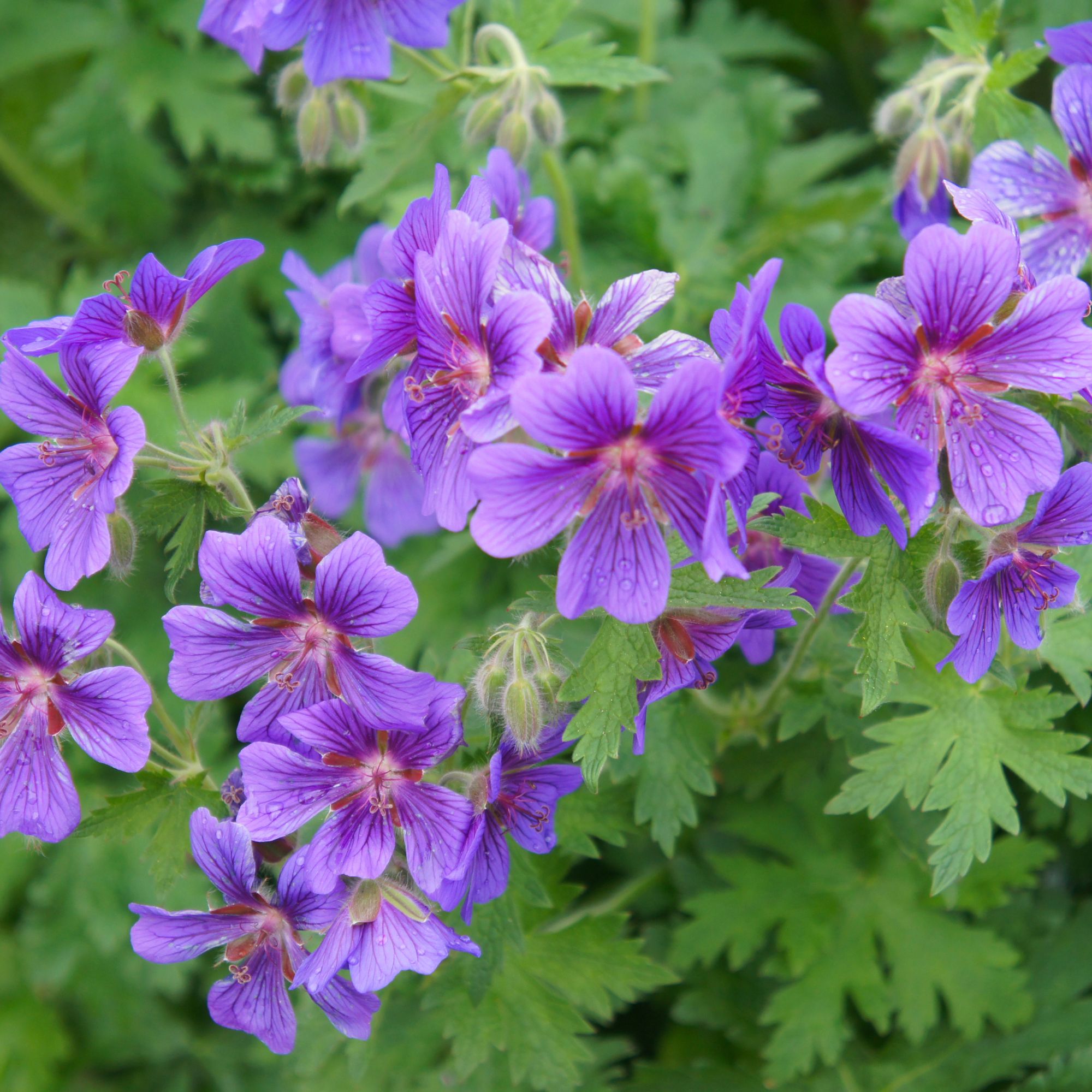
‘Hardy geraniums (also known as cottage geraniums and cranesbills) are some of the most reliable and hardworking plants in any garden,’ says Kate. ‘They come in all sorts of colours and are brilliant for filling gaps. Best of all, slugs don’t seem to like them at all.’
Hayden agrees: ‘The slightly fuzzy leaves and strong scent make hardy geraniums a poor choice for snails, but a great choice for gardeners.’
Where to buy hardy geraniums:
- Crocus: The pretty geranium 'brookside', from £7.49 has a long flowering season.
- Thompson & Morgan: Or try the geranium hardy collection, £19.99, with a choice of four varieties.
4. Ferns
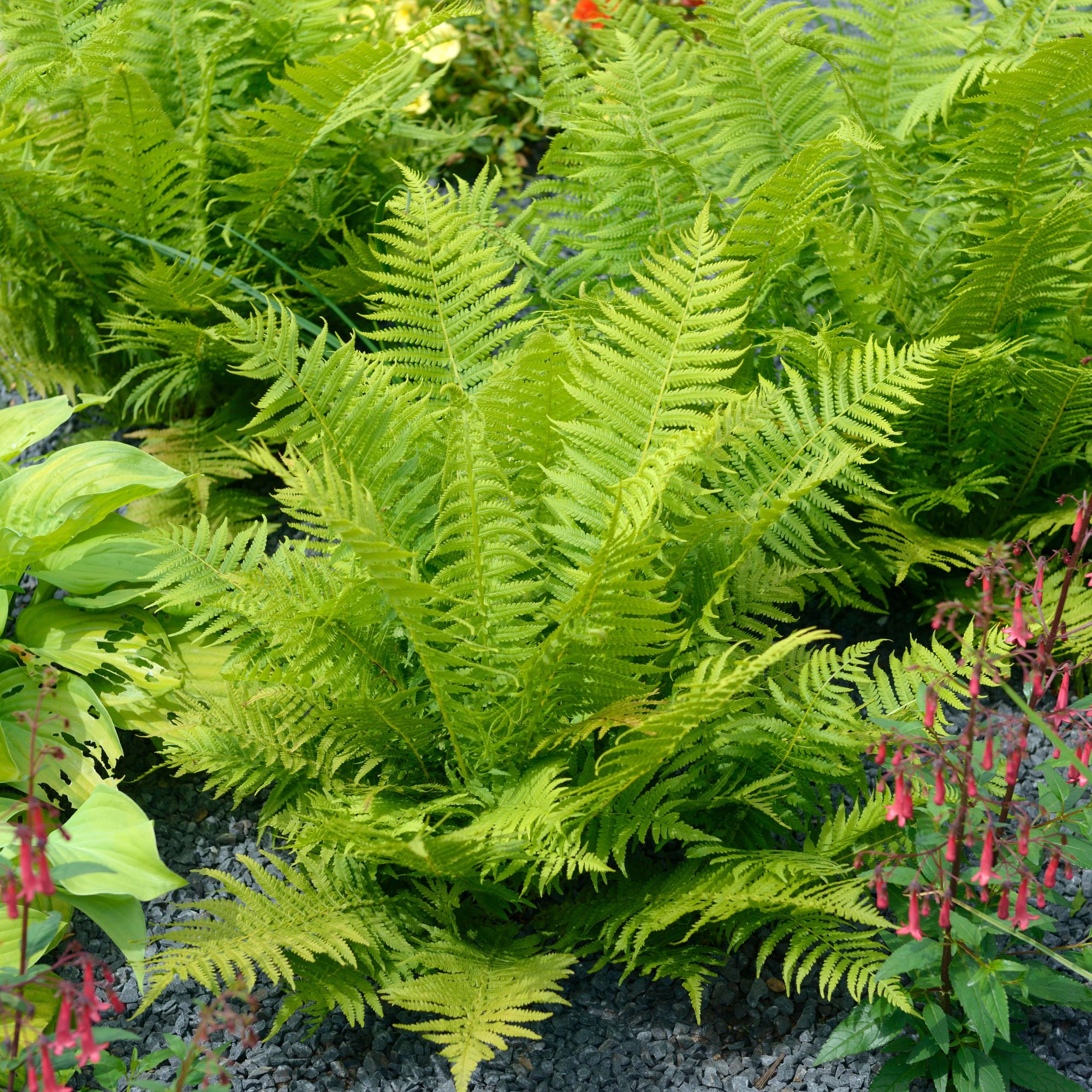
‘I adore ferns,’ says Kate. ‘They thrive in spots where many other plants struggle and always look fantastic. There are varieties suited to damp, shady areas where slugs are often found, yet they remain untouched.’
‘The leathery, frilly leaves of ferns are unappealing to snails,’ adds Hayden. ‘When it comes to looking after plants, stay vigilant in wet weather, as snails thrive in moist conditions. But remember - no method is foolproof, so combining deterrents with plant choice gives you the best chance of keeping your borders snail-free.’
Where to buy ferns:
- Suttons: Try the exotic, bronze-tinted blechnum brasiliense 'volcano' fern, from £13.99.
- Gardening Express: Or try five different contrasting varieties with the fern plant collection, £19.99.
5. Euphorbia
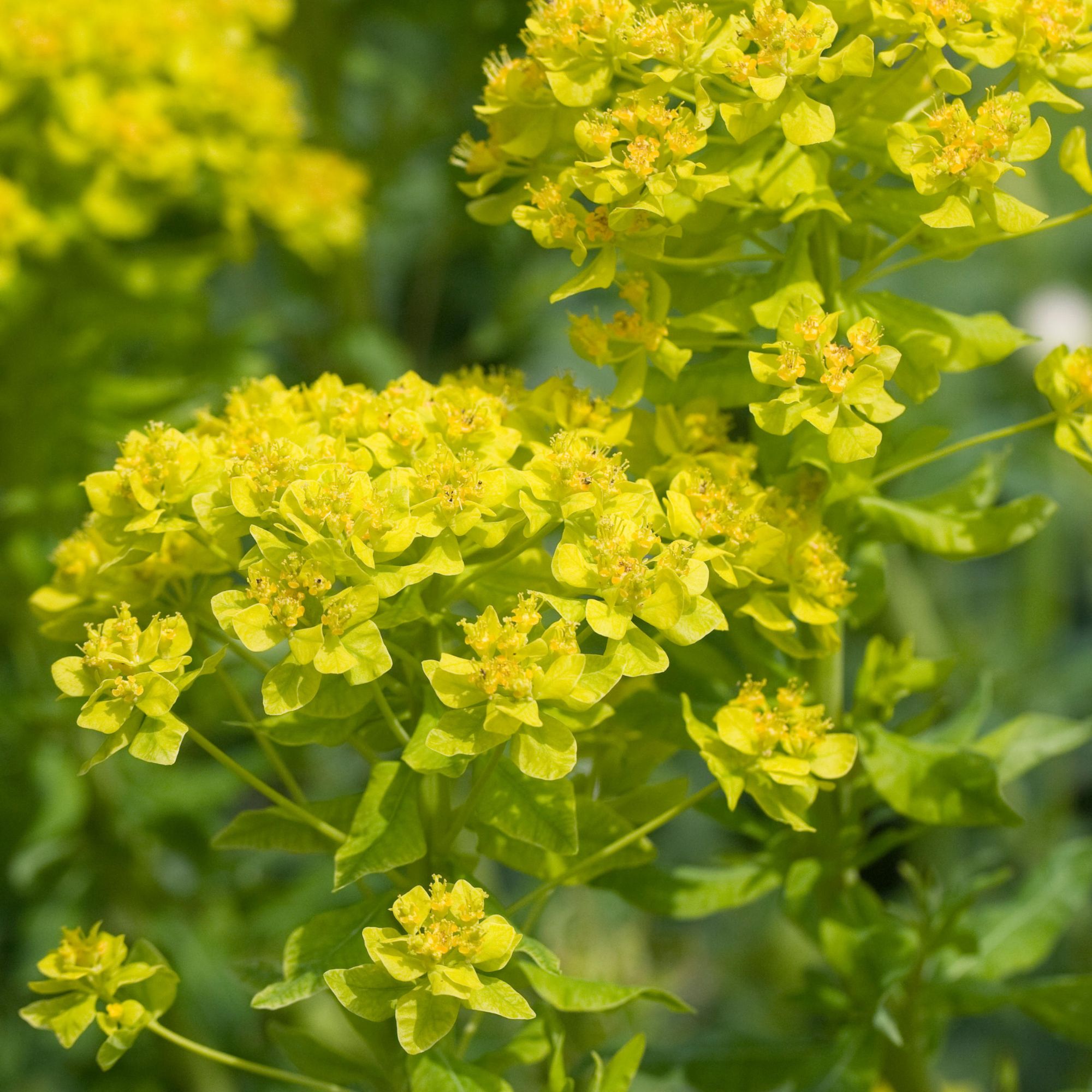
‘There are many varieties of euphorbia to grow, but my favourite for the garden is euphorbia characias wulfenii, with its bright lime-green flowers in spring,’ says Kate. ‘Its leaves are unappealing to slugs and snails, but do handle with care – the sap can irritate your skin.’
Hayden agrees that growing euphorbia and also foxgloves are great for banishing slugs and snails. ‘Both have a bitter taste or slight toxicity that snails tend to avoid.’
Where to buy euphorbias:
- Crocus: Pick the compact, shade-loving euphorbia amygdaloides var. robbiae, from £6.74.
- Suttons: Or try the acid-green and red tones of euphorbia x martini, from £19.99.
6. Lamb's ears
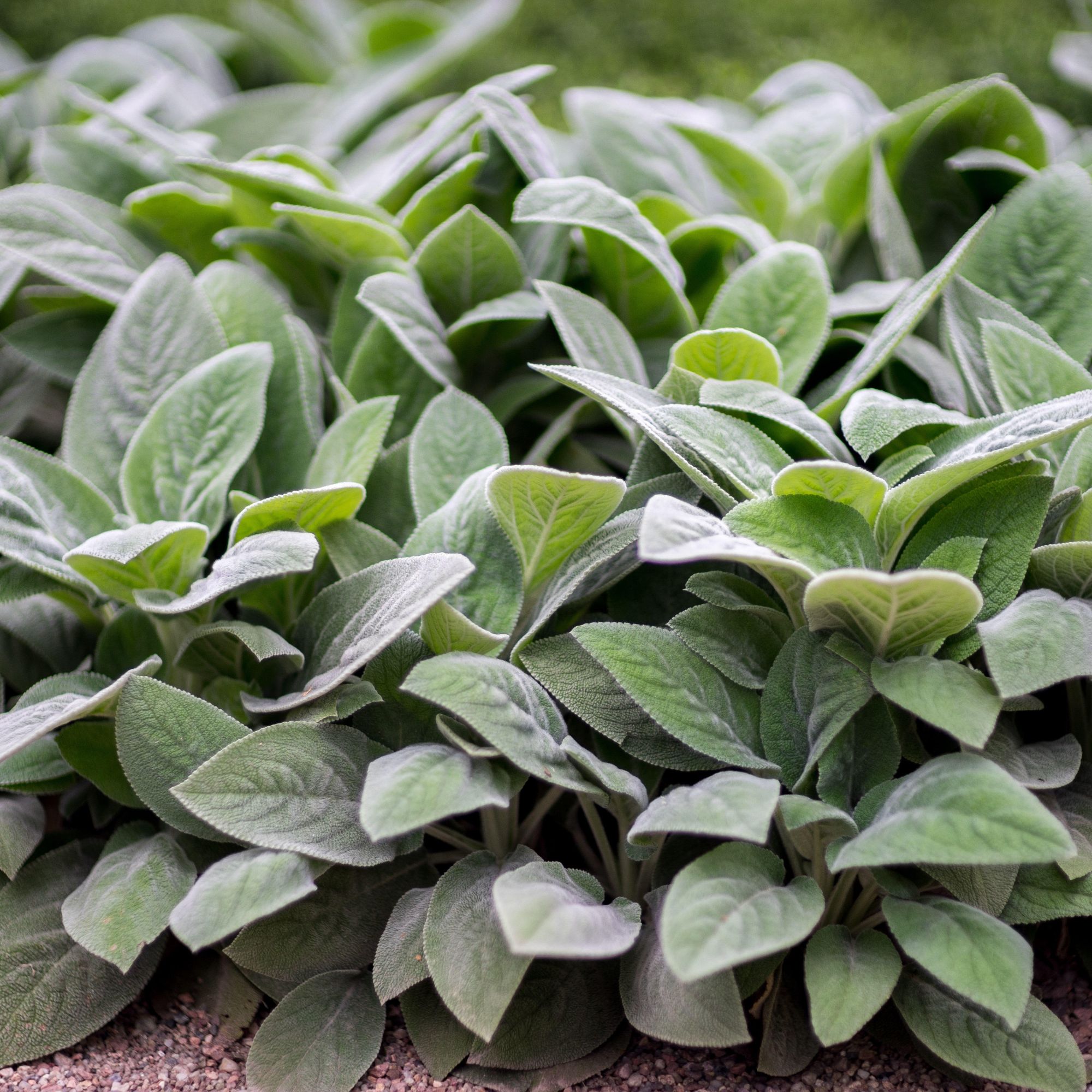
‘Perennials like lamb’s ears, foxgloves, geraniums, penstemons, and sedums are naturally slug-resistant,' says Julian. ‘They contain toxins that slugs and snails don’t like and hairy stems and leaves that put them off.’
‘Many plants with furry foliage, like lamb’s ears, tend to escape the attention of hungry molluscs, so if slugs and snails are a problem in your garden, look for hairy-leaved varieties like these,’ advises Kate. ‘Lamb’s ears thrive in sunny spots and look stunning alongside a purple and pink colour scheme, with their silvery foliage shining at the front of a border.'
Where to buy lamb's ears:
- Crocus: Brilliant for ground cover, try Stachys Byzantina Silver Carpet, from £8.99
- B&Q: Or try Stachys Byzantina Big Ears, £14.99, with its extra-large grey-green leaves.
7. Hydrangeas and roses
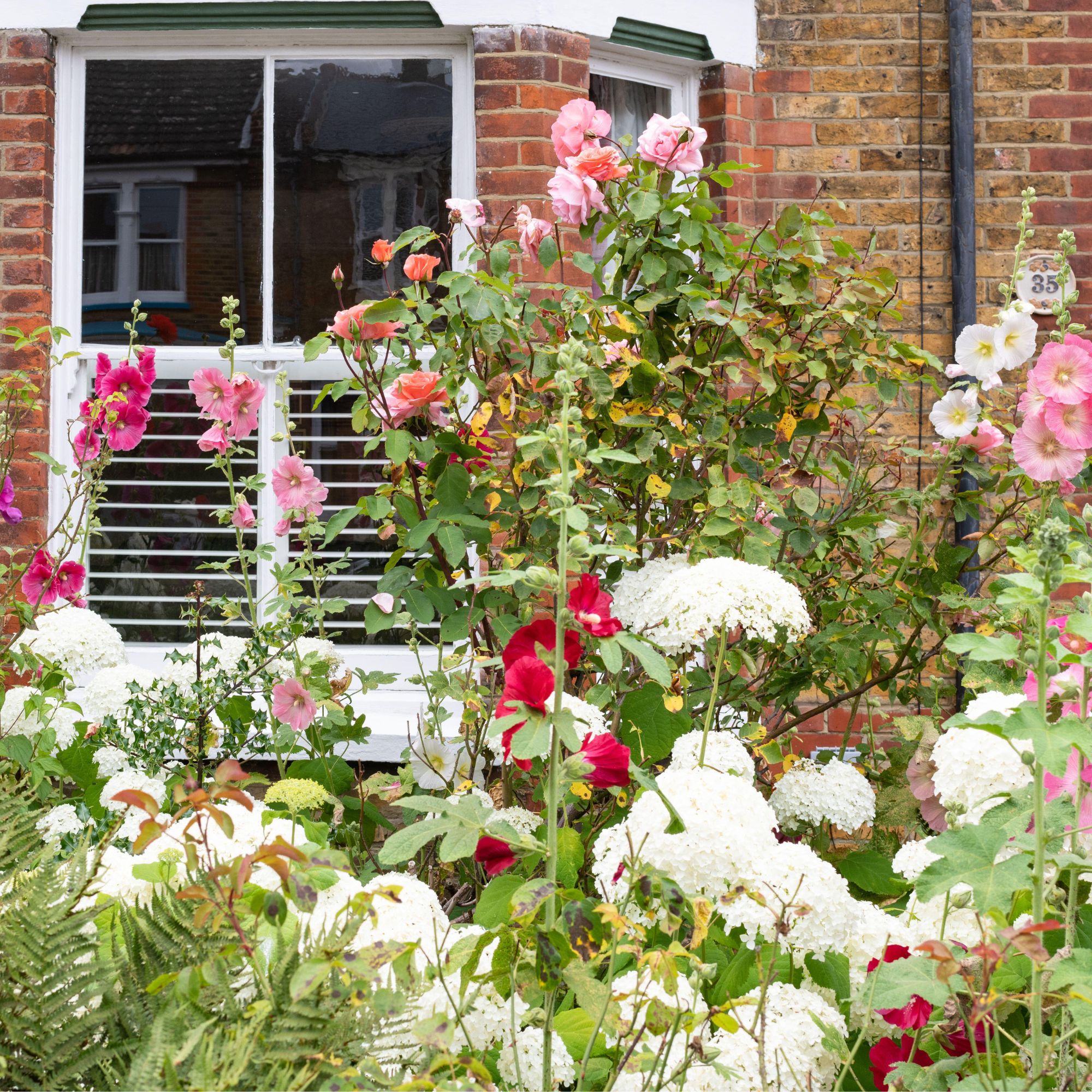
‘Snails and slugs tend to avoid plants with tough, waxy, or hairy leaves that are difficult to crawl on, so woody shrubs like hydrangeas and roses are a great choice for any garden with a texture and aroma that repels snails,’ says Julian.
Young, newly-planted hydrangeas can be more vulnerable to slug and snail damage, so try protecting tender plants with a bark mulch around the base or a layer of sharp horticultural grit (available on Amazon).
Where to buy hydrangeas and roses:
- Gardening Express: Go for the bold and beautiful giant blue mophead hydrangea, £24.99.
- Suttons: Or try the peachy-toned Rose 'Precious Amber', £17.99.
8. Heucheras
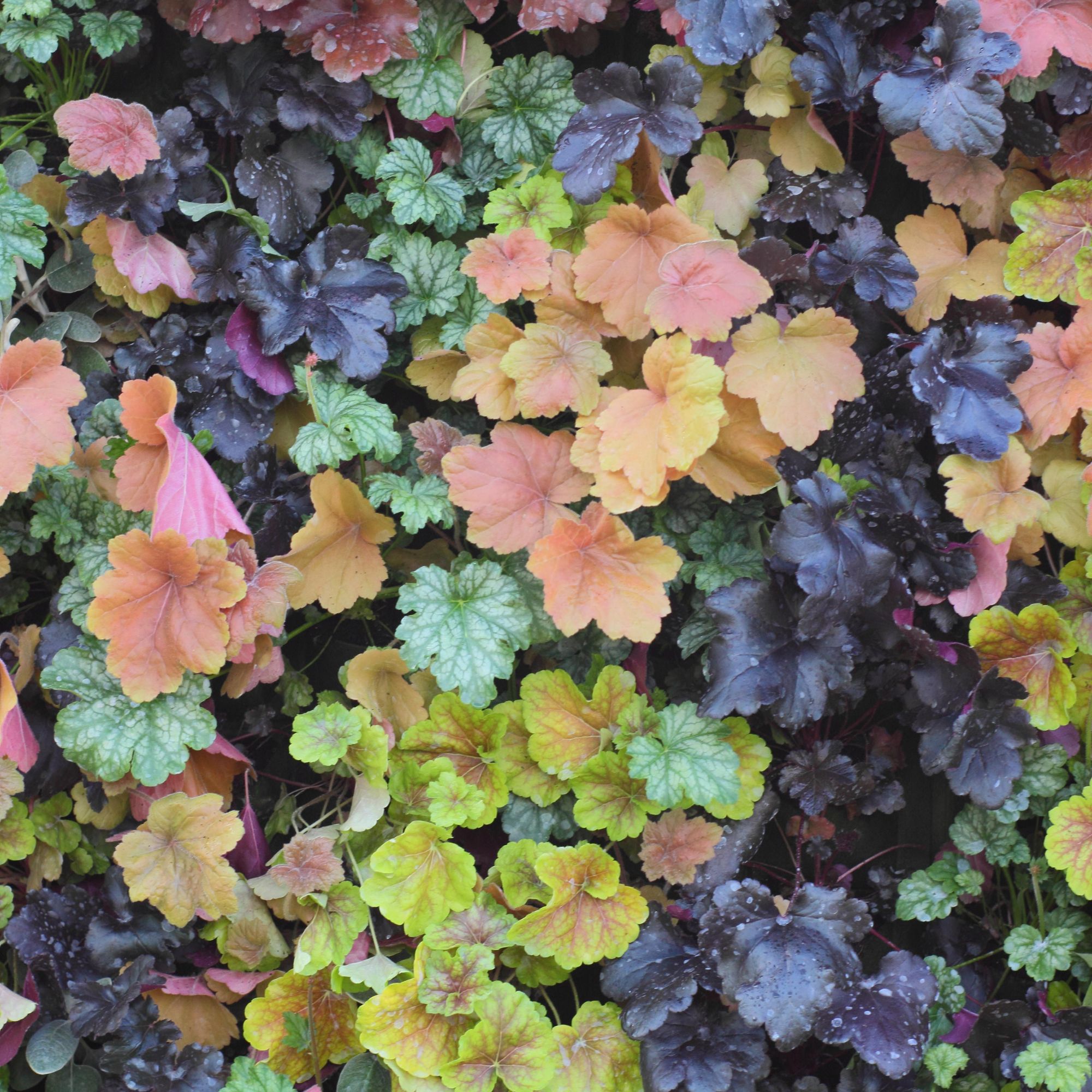
‘If you'd like to include a woodland foliage plant, avoid hostas and opt for ground covering plants like heucheras instead,’ suggests Kate. ‘They come in an array of colours - from lime green and purple to orange, which are low maintenance, mainly evergreen, and best of all, slugs and snails tend to steer clear.’
‘Similarly, succulents and cacti are another great choice for snail and slug repellent plants,’ Kate adds. ‘Ideal for small courtyards or patio gardens, succulents and cacti are low-maintenance, slug-resistant options. Hardy varieties like Oppuntia can tolerate temperatures down to -5°C - just make sure to protect them from excess moisture.’
Where to buy heucheras:
- Primrose: Try the delightfully-named heuchera plum pudding, from £12.99, with its purple tones.
- Gardening Express: Or go for the zingy heuchera lime marmalade, £9.95.
Shop these slug and snail repellents
If you want to try some natural deterrents alongside your plant choices, here are some options that can be effective.
FAQs
What will slugs not crawl over?
‘One good natural way to deter them is to put things around your plants that snails don’t like to crawl over, like crushed eggshells or coffee grounds also make a rough and uncomfortable surface that snails avoid,’ suggests Julian.
‘Another recommendation is to use copper tape or copper rings around your plants. Snails don’t like to touch copper because it gives them a small shock,’ adds Julian.
What smells do snails hate?
‘Garlic smells strong and also keeps snails away,’ suggests Julian. ‘Just boil some garlic in water, let it cool, and spray it on your plants once a week. Make sure you check your garden often and pick up any snails you see by removing them by hand.’
‘Go out at night with a torch for a slug hunt,’ suggests Kate. ‘That’s when they’re most active. Collect them in a bucket and release them wherever you see fit. I tend to release them into woodland, just remember, snails will return unless they’re taken more than a cricket pitch’s length away.'
Coming up with eco-friendly ways to deter slugs and snails can be a challenge, but clever planting choices can make the job easier. Which plants will you be trying this summer?

Lisa is a freelance journalist who has written about interiors for more than 25 years. Previously editor of Style at Home magazine, she has worked on all the major homes titles, including Ideal Home, Country Homes & Interiors, 25 Beautiful Homes and Homes & Gardens. She has covered pretty much every area of the home, from shopping and decorating, crafts and DIY to real homes and makeovers and now regularly writes gardening stories for Ideal Home.
